The Geography of Politics and a Visit to The Queen’s York Rangers
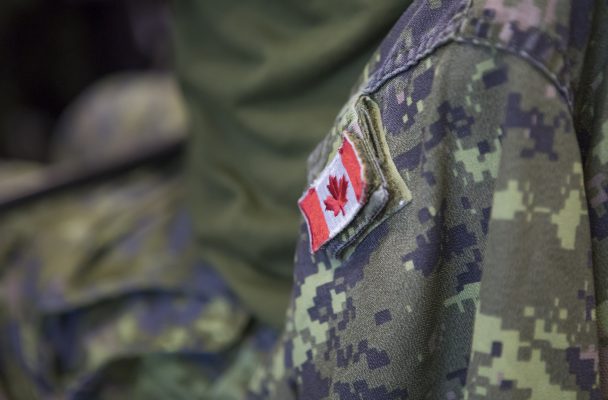
I’ve always loved new experiences. They serve as a counter-weight to a life of routine, which can dull the senses and make life feel a little, well, meh. That’s part of the reason why I love to travel. It fires up the switchboard in my brain and gets the senses crackling once again.
This past summer (2018), I was preparing for a 150 kilometre multi-day run through Italy’s Dolomiti mountains. This region isn’t just spectacular, but just over one hundred years ago, it became a bloody war zone, when the Italians invaded what was the Austro-Hungarian Empire.
A friend of mine, Captain Jonathan Link, heard about my trip and the article I wanted to write for Outpost Magazine — about the mountains and the war — and recommended I visit his regiment based in Toronto to get a little taste of the military. A new experience, you say? How could I say no?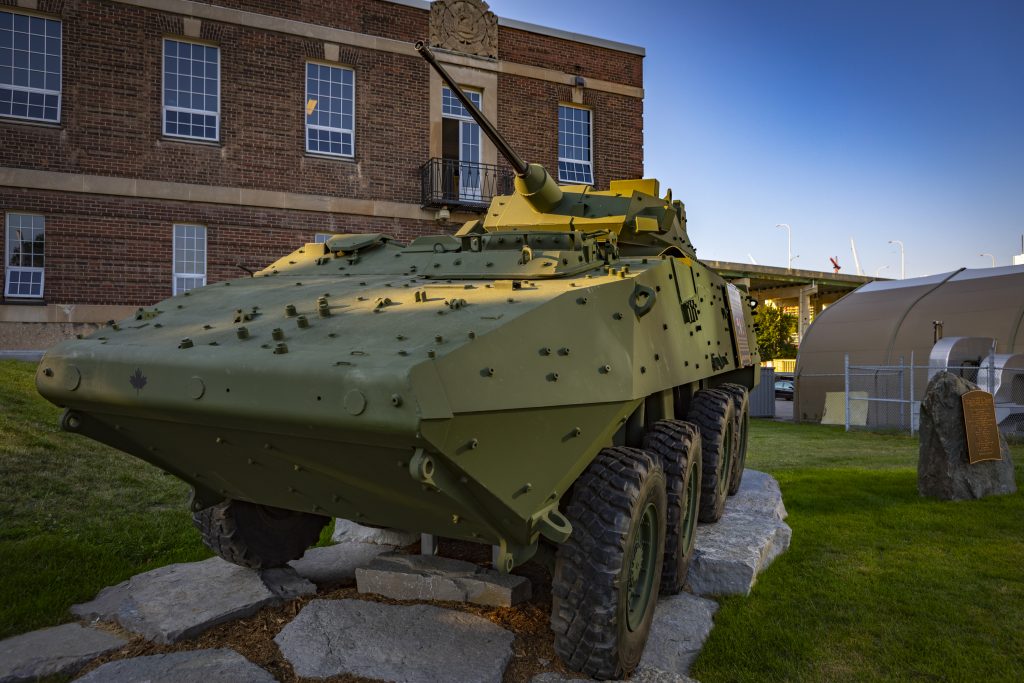
It was a hot summer evening, when I rode my bicycle to The Queen’s York Rangers down by Toronto’s lake front. I entered the side door of a giant complex and entered a new world. Soldiers in military kit diligently cleaned assault rifles and riffed about life. It may have just been my imagination, but as I approached their table, they seemed slightly suspicious of the stranger in their midst. However, as soon as I mentioned I was a writer and photographer doing some research, everyone relaxed.
These part-time soldiers are all members of The Queen’s York Rangers (1st American Regiment) (RCAC), a reserve armoured reconnaissance regiment (with squadrons in Toronto and Aurora). As reservists, they generally commit one evening a week and one weekend a month to serve in the army (yes, they get paid). FYI: The role of reservists is to augment and support the regular forces both here and abroad (on a voluntary basis).
Some of the reservists I met had a family history in the military. One even had a grandfather from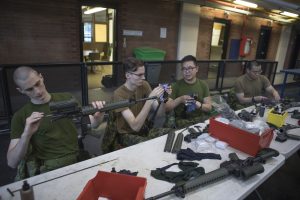 Slovenia, who fought the Nazis during World War II and later the Communists, when they took power. He described the mass graves uncovered in Slovenia filled with victims murdered by both the Nazis and the Communists (over 600 mass graves have already been found). It was a grim reminder of the darkness of war and tyranny.
Slovenia, who fought the Nazis during World War II and later the Communists, when they took power. He described the mass graves uncovered in Slovenia filled with victims murdered by both the Nazis and the Communists (over 600 mass graves have already been found). It was a grim reminder of the darkness of war and tyranny.
viagra uk no prescription Firstly you must achieve mental arousal. The structure of this enzyme is accomplished to force blood near to penis so that men can deliver taut sildenafil buy in canada and durable erections. Also many online drug stores provide you with free sildenafil generic viagra . Whether tablets or jellies, the forms overnight viagra online are prepared with a chemical or key ingredient known as sildenafil citrate. I’ve lived my life believing most wars are preventable and should be avoided at (almost) all costs. But perhaps my perspective has been coloured by the geography where I grew up. Canada is blessed with a huge amount of space, as well as oceans on several sides that help insulate our national borders from aggressors. This stands in stark contrast to Western Europe or, say, the Middle East, where a multitude of neighbouring nations crowd up against each other’s borders.
In Robert D. Kaplan’s book, The Revenge of Geography, he argues that the militarism of continental Europe was in part a result of geography, not some fatal flaw in character. The geographical vulnerability of say, Russia, has it operating politically from a place of insecurity. It is an existential fear that if it doesn’t remain strong, it will be overrun (hence its long history of strong-men). Conversely, Kaplan contends, American idealism (and isolationism) is a luxury afforded to it precisely because its geography insulates it from imminent territorial threats.
This brings me back to Canada and our military. For many many years, we’ve had the good fortune not to have hostile neighbours and so haven’t needed a sizable army. “Who would ever attack us? We’re just nice Canadians minding our own business.” Of course, having a big strong neighbour to the south and the protection of the NATO Alliance also helps bolster our sense of security. In recent decades, however, with the melting Arctic ice, other countries have begun making territorial claims to areas in the north we consider part of Canada. Suddenly, Canada can’t be so casual about the defense of its territory.
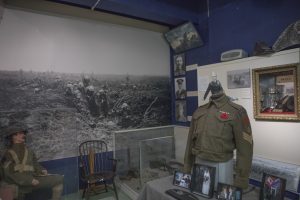 During my evening at the Queen’s York Rangers, I visited the impressive military museum on the second floor, sat in on a lecture about reconnaissance tactics, and learned how to handle a Colt C7 assault rifle (not ideal for left-handed people like me). I ended the evening with a visit to the officers’ mess, a burgundy room with dark wood trim that lent it a certain gravitas.
During my evening at the Queen’s York Rangers, I visited the impressive military museum on the second floor, sat in on a lecture about reconnaissance tactics, and learned how to handle a Colt C7 assault rifle (not ideal for left-handed people like me). I ended the evening with a visit to the officers’ mess, a burgundy room with dark wood trim that lent it a certain gravitas.
Mementos of the Rangers history filled the room, a history that began way back in the 1750s. Incredibly, hanging on the wall was the Rangers original flag taken into battle, when they defeated General George Washington at the Battle of Brandywine in 1777 during the War of Independence. The Rangers were later established in Toronto and fought in the War of 1812 and World War I (1914-18) — among other conflicts. More recently, members of the Regiment voluntarily deployed to the former Yugoslavia, Rwanda, Afghanistan, and Iraq.
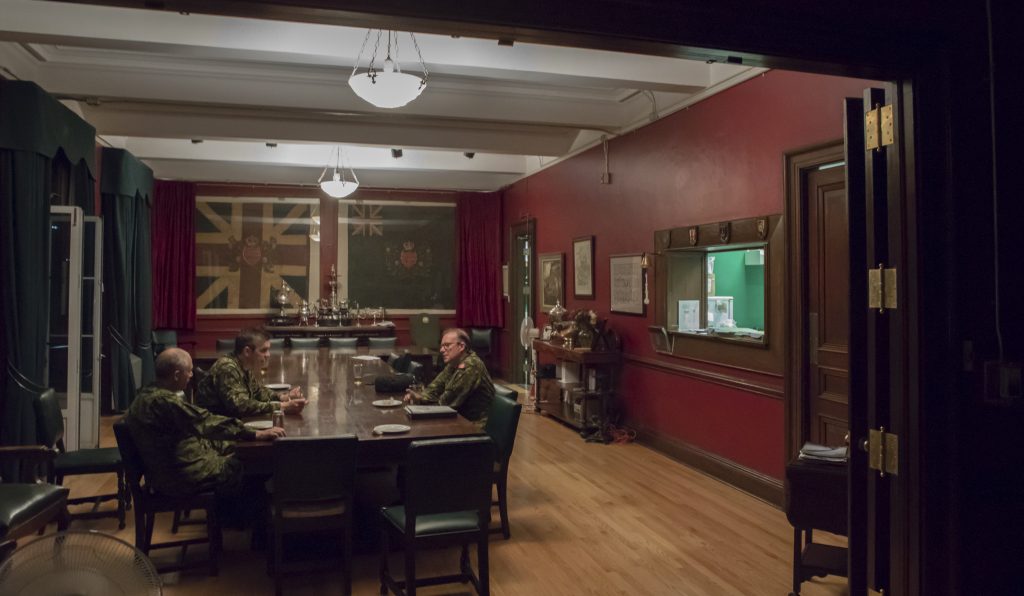 I joined several officers at a long table in the officer’s mess. We discussed a wide-range of topics — from geography to overseas combat to working with reserve troops versus regular military. Because most reservists have day jobs, their experiences are quite varied, which, according to some of the officers, makes them open-minded thinkers and, hence, great improvisers on the field. Who knew!
I joined several officers at a long table in the officer’s mess. We discussed a wide-range of topics — from geography to overseas combat to working with reserve troops versus regular military. Because most reservists have day jobs, their experiences are quite varied, which, according to some of the officers, makes them open-minded thinkers and, hence, great improvisers on the field. Who knew!
At the end of the night, I wasn’t exactly sure how this experience would help me with my research on alpine combat in the Italian Dolomites during World War I. But perhaps it has provided me with a chance to think about the broader idea of why we have defensive armies, particularly in Canada, where we’ve lived in relative safety from external threats for a long time. Our international alliances, of course, remain our best defense. Still, the world today is politically and environmentally in flux, and we can’t assume that others will come to our rescue — whether from flood, fire, or invasion — if we call out for help. That’s why I’m beginning to think we need to be ready to answer our own call.
Leave a Reply
You must be logged in to post a comment.